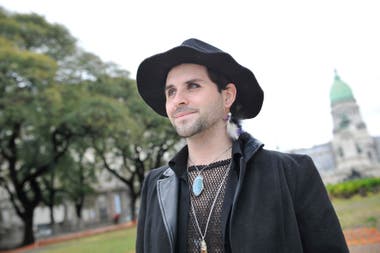The pandemic exposed all our weaknesses and the fragility to which we exposed our planet. In this context of crisis, which also leaves learning,
the urgency to rethink our ways of bonding with the earth
they are more clearly perceived and the challenges for a not so distant post-pandemic era are beginning to be outlined.
Caring for the
biodiversity
and restate our ways of
production and consumption
, the importance of
prioritize cooling the planet
as a short-term goal, as well as giving rise to new
circular economies
are some of the points raised by the specialists consulted. The idea that prevails:
the time to act is today
.
“Human activities are catastrophically modifying the planet and generating serious consequences for the well-being of humanity. Changes in land use – such as
deforestation
and the conversion of natural habitats – for unsustainable agricultural and livestock activities are responsible for almost half of diseases, since they increase the chances of contact between wildlife, livestock and humans.
In this context, it is necessary to reflect on the relationship between human beings and nature and
review our food and production systems
, aiming at the generation of food free of deforestation and conversion to achieve a healthy and sustainable future.
Almost 13 years after the enactment of Law No. 26,331 on Native Forests, its implementation has been partial. According to a report prepared by FARN and Fundación Vida Silvestre,
Argentine native forests have been undergoing great modifications
product of the change in land use for agricultural, forestry, urban and road activities, which generates serious consequences, sometimes irreversible.
There are opportunities to meet economic needs and reasonable expectations for growth, while ensuring that our natural resources are available to us and to future generations. Conserving native forests and the benefits they provide is essential and a great challenge from now on to preserve our health and well-being. ”
“In these times of global confinement, educators and teachers have had the challenge of adapting educational processes incorporating information and communication technologies (ICTs). The same is happening in the most diverse work environments. In this process we realized that our time can be used more efficiently, that there are transfers that we can avoid and that many meetings can be resolved remotely.
This forced change in both education and working life has beneficial aspects for people and nature that would be interesting to make systematic in the post-pandemic era.
Reducing the environmental impact by minimizing the use of transport is a fact: a study published in the journal Nature Climate Change ensures that
global confinement reduced global daily carbon dioxide emissions by 17%
, the lowest level since 2006. Emissions from the
ground transportation represent 43%
of that decrease.
It will be a challenge to generate the necessary conditions in the different corners of our country so that everyone has access to sufficient technological tools to make education and remote work a reality that generates more and more positive impacts, both environmental and social and economic. : from the reduction of carbon dioxide emissions through access to knowledge from different parts of the world to the efficiency of time and the saving of resources and transfers. ”
“This pandemic is the opportunity to change the paradigm and think, for example, that
waste can go from being an expense to a recovery of the economy
in many ways, and becoming the first link in a possible and effective circular economy.
Today
there are more than 2000 open-air dumps in Argentina made up of 50% recyclable material
(plastic, paper, etc.) and 50% organic material that can be used beyond compost. Argentina has technology available to convert this organic material into biogas, biofertilizers and, in addition, give it a revolutionary plus: producing food.
Landfills generate unused methane gas and cause 21 times more damage than carbon dioxide. Burning methane gas to generate energy produces carbon dioxide, and that CO2, by photosynthesis, can be used to grow algae (spirulina) and generate high protein foods as indicated by the UN.
With political decision and the union of municipal, provincial and national authorities, all the components of the buried and incinerated waste can be used to achieve a circular economy that involves recycling, energy generation, biofertilizer and food production. , and that
points to a real goal of zero waste
”
“Climate change mitigation has only one way:
reduce greenhouse gas concentrations
, and this is achieved by adding actions. We must replace the way of producing energy: replace coal thermal energy with increasingly accessible renewable energies (wind, photovoltaic, concentrated solar, hydroelectric, geothermal, bioenergy). Today there are short-term and low-cost options to reduce emissions of most gases: in addition to CO2, for example, for methane, and proper management of livestock.
We can start thinking about the
energy efficiency
achieving that the energy we use yields us to the maximum, saving its use. In this way, enhance construction and strategic design: air conditioning efficiently with more green spaces, better orientation with respect to the sun or the use of insulating materials, and thus avoid the need for excessive cooling or heating.
Choosing materials that can be renewable saves a lot of energy compared to what should be used to produce a new product.
Recycling is an activity that today should be habitual for the entire population.
It is our duty to claim the authorities in this regard. Every action counts, every minute counts, because every degree of temperature increase counts. ”
ALSO
.
Publicado en el diario La Nación




